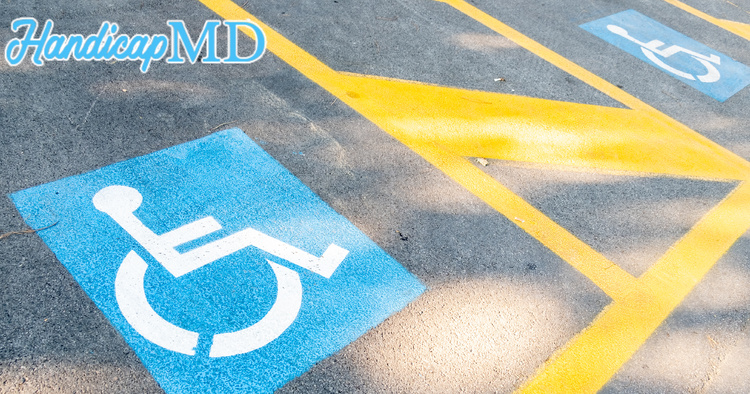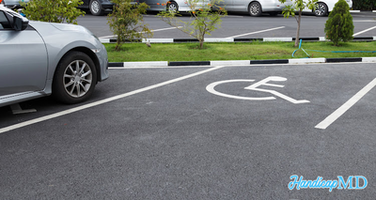
Myths vs. Facts: Debunking Common Misconceptions about Handicap Placards in Illinois
Introduction
In Illinois, handicap placards play a crucial role in providing accessibility and convenience to individuals with disabilities. However, there are several common misconceptions and myths surrounding handicap placards that often lead to confusion and misunderstanding. In this article, we will debunk these misconceptions and shed light on the facts regarding handicap placards in Illinois. Whether you're a person with a disability or simply seeking accurate information, this comprehensive guide will provide you with the necessary insights.
Myth 1: Handicap placards are only for individuals who use wheelchairs.
Fact: Disability permits are not exclusively for individuals who use wheelchairs. They are designed to provide accessibility to individuals with a wide range of disabilities, including those with mobility limitations, visual impairments, cardiac conditions, and other disabilities that affect their ability to walk or engage in daily activities without assistance. The purpose of the pass is to ensure that individuals with disabilities can access designated parking spaces conveniently.
Myth 2: Handicap placards are only valid within the state of Illinois.
Fact: Disability passes issued in Illinois are recognized and valid not only within the state but also in all other states of the United States. This reciprocity ensures that individuals with disabilities can benefit from accessible parking regardless of their location. However, it is essential to adhere to the parking regulations and guidelines specific to each state to avoid any penalties or misunderstandings.
Myth 3: Handicap placards are permanent and do not require renewal.
Fact: Handicap permits in Illinois are issued for a specific period, and they do require renewal. The duration of validity varies depending on the type of pass issued. Temporary ones are typically valid for six months, while permanent passes require renewal every four years. It is essential to keep track of the expiration date and apply for renewal in a timely manner to ensure uninterrupted accessibility.
Myth 4: Handicap placards can be used by anyone, even if they don't have a disability.
Fact: Disability passes are strictly reserved for individuals with qualifying disabilities. It is illegal and unethical to use it if you do not have a disability or if you are using someone else's pass without proper authorization. Law enforcement agencies actively monitor the misuse of permits, and violations can lead to significant fines and penalties.
Myth 5: Handicap placards are only issued to individuals with visible disabilities.
Fact: Handicap permits are not limited to individuals with visible disabilities. Many disabilities are not immediately apparent or visible, including chronic pain conditions, heart conditions, respiratory disorders, and various types of impairments that may not be visibly apparent. The application process for a handicap placard in Illinois involves medical certification and evaluation to ensure that individuals with all types of disabilities can access the necessary accommodations.
Myth 6: Handicap placards allow unlimited parking time.
Fact: While disability permits provide accessibility benefits, they do not entitle the holder to unlimited parking time. The specific parking regulations and time limits still apply, even with a valid pass. It is important to be mindful of the parking restrictions and adhere to the designated time limits to avoid violations and ensure fair access for everyone.
FAQ's
Q: Can I apply for a disability pass if I have a temporary disability?
A: Yes, individuals with temporary disabilities can apply for an Illinois handicap placard. Temporary ones are issued for a duration of six months and require medical certification of the temporary disability.
Q: How can I apply for a disability pass in Illinois?
A: To apply for a pass in Illinois, you need to complete an Application for Disabled Person Parking Placard or Plates form. The form can be obtained from the Illinois Secretary of State's website or any Secretary of State facility. You will need to provide medical certification of your disability along with the completed application.
Q: Can I use my disability pass in other states?
A: Yes, permits issued in Illinois are recognized and valid in all other states. However, it is crucial to familiarize yourself with the specific parking regulations and guidelines of each state you visit to ensure compliance.
Q: Can I lend my disability pass to someone else?
A: No, lending your pass to someone else is not permitted. Disability permits are issued for the exclusive use of the person with the disability named on the pass. Using someone else's permit without proper authorization is illegal and can result in penalties.
Q: Can I use my disability pass if I am driving someone else's vehicle?
A: Yes, permits are transferable between vehicles. You can use it when driving someone else's vehicle as long as you are present and using the vehicle for transportation purposes.
Q: How can I renew my disability pass in Illinois?
A: To renew your disability pass in Illinois, you will need to complete the Application for Disabled Person Parking Placard or Plates form again and provide updated medical certification. The renewal process should be initiated before the expiration date to avoid any gaps in accessibility.
Conclusion
By debunking common misconceptions surrounding handicap placards in Illinois, we aim to provide accurate information and promote a better understanding of the accessibility measures in place. Disability passes serve as essential tools for individuals with disabilities, ensuring equal access to parking spaces and improving their quality of life. It is crucial to adhere to the regulations, use passes responsibly, and respect the rights of individuals with disabilities. Let us work together to create a more inclusive society.
.png)






